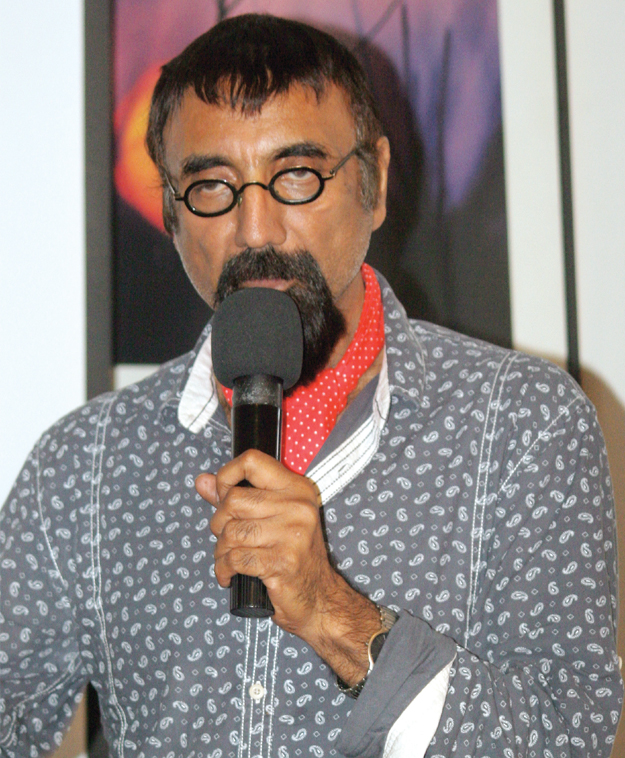
LAHORE:
Pakistan is all set to get its own remake of Bollywood’s The Dirty Picturewhich starred Naseeruddin Shah and Vidya Balan. The B-grade Lollywood film titledDirty Girl is going to be Metropole cinema director and producer Qaiser Sanaullah’s third film and second in collaboration with famed director Malik Yunus.
Sanaullah, who is also being tipped to become the first chairman of the Punjab film censor board, has been critical of the standards that have prevailed within the industry over the last decade. He has been trying to use his working class background as a way to ensure that local films continue to be produced. Recently, Sanaullah’s film Pangi Laleeya belonging to the Pashto film industry, Pollywood, was released. His latest project and upcoming film Dirty Girlwill premiere on Eid, in which director Arshad Khan has tried to tackle bold and racy topics.

“The film has been shot in several mansions outside of Lahore and is inspired by the Indian film The Dirty Picture,” explains Sanaullah. He also adds that the film is a small effort by him to give back to the industry in which he has worked his way up.
“The story is based on a true incident. However, I don’t feel it is right to mention the location,” he says. “It’s about how an educated girl is forced to become a call girl.” The movie features Nida Chaudhry, Shahid Khan, Babrik Shah, Irfan Khoosat, Rashid Mehmood along with several other known names.
“This is my third effort in making a film. This film can be seen at those cinema houses where Indian films are not being played or in smaller markets where there is lack of content,” says Sanaullah.
His work with Metropole has been refreshing in terms of single-cinemas in Lahore, especially during down time for cinema.
He admits that Indian films filled a void when the continuance of caste-based Gujjar and Biradari films continued.
“Film-goers are far more aware when it comes to watching films,” explains Sanaullah. “They know before they leave the house if they want to watch a particular film or not.”
He has been backed by some of the biggest names in the industry such as Syed Noor, Shehzad Rafique, and Zorraiz Lashari to become the censor board chairman in Punjab.
Sanaullah has been critical about the role of the censor board in the past. “Since Pakistan has created a censor board, it has been ruled by bureaucrats,” says Sanaullah.
“This is the first time a worker or person related to the film industry has been proposed as chairman. Bureaucrats, politicians, capitalists and landowners have held the censor board hostage — they never knew the real issues of the film industry.”
If made chairman, he says that he can tackle real issues and help the struggling industry in Lahore and Punjab. He also reiterates that it was most important that a person from the film industry was selected or promoted.
“I will make sure the grassroot issues, which are neglected by the government, reach the forefront,” says the producer. “The position has been used only for its perks.
I will be the first to propose that I should work only in an honorary capacity.”

Still, there will be a lot of hurdles for him, including the underground mafia and big money investors that influence the industry’s direction.
Sanaullah says that he understands the challenges but is even more assured of his backing from the local industry.
“There are still people from the industry who have political clout which they take advantage of; some people have big money, and others have bureaucratic support,” says Sanaullah.
“Change can only come if someone from the grass-roots is placed who understands the core issues.”


 LAHORE:
LAHORE: 




















